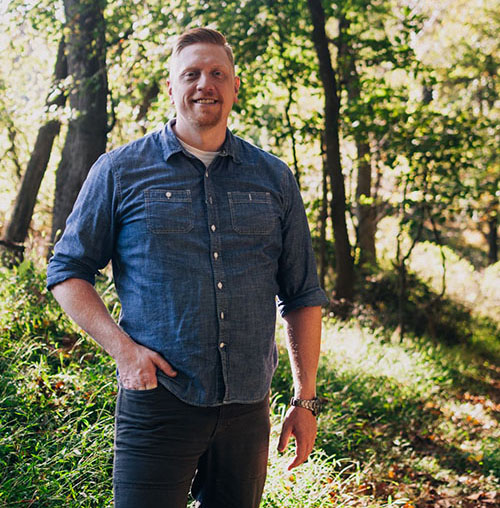Two months ago, I went to Echelon Front’s Muster 002 in New York City. I could tell you that it was a 2-day leadership conference led by Jocko Willinck and Leif Babin, two Navy SEALs who made up the leadership of Task Unit Bruiser which saw some of the most violent action in Ramadi, Iraq. The company (Echelon Front), the book Extreme Ownership, the Jocko podcast, and the MUSTER 002 are all avenues to teach the practical leadership skills gained from those combat experiences.
I could tell you those facts, but it doesn’t come close to the heart of what it was like to be there. 450 leaders from 19 countries across all industries, corporate sectors, education, government, and yes, law enforcement and military. Few times have I felt like a small fish in a really, really big pond. The experience was so overwhelming and multi-faceted that I wasn’t sure I was up to the task of describing what it was like. But I’m going to try.
First, for sights and sounds of the two days, watch the video recap.
Second, if you haven’t read the book Extreme Ownership, go do yourself a favor and read it.
Jocko and Leif traded off leading sessions wherein they explained what they call the “Laws of Combat.” These include concepts such as “cover and move,” “decentralized command,” “simple,” and “prioritize and execute.” Future blog posts will attempt to unpack each one of these, but for now I’d like to focus on the overarching principle of Extreme Ownership.
Simply put, an approach of Extreme Ownership states that a leader is responsible for everything that happens under his or her world. The only two measures for success are “effective and ineffective,” and a leader takes responsibility for everything that leads to the effectiveness of his or her team.
The primary obstacle to implementing Extreme Ownership in every area of one’s work and life is simple: Ego. A desire to appear more effective than one really is will cause a leader to blame others for his or her failures. Fear of losing standing or respect will cause a leader to point the finger of blame towards others when he or she failed to lead properly. When you put yourself and your own interests above the team, the mission, or the project, it will inevitably fail because of leadership that simply does not exhibit Extreme Ownership.
Truth be told, I feel like a hypocrite even writing about this. Since I was in my teens I have had the word “leader” thrown at me. It has at times flattered me, while other times it has felt like a crushing weight. People constantly called me a leader without ever really explaining what they meant, or how to lead well. One thing I realized at the Muster was that, for almost two decades now, I have had a conflicted view of my own leadership. And the lessons from Muster helped reconcile this conflict.
The approach of Extreme Ownership is anything but flattering. If anything, it preaches an approach that will absolutely deflate the ego. A person in a position of leadership who is not actually leading in humility will flee Extreme Ownership. However, for those willing to face the ownership required of their own leadership roles, it will absolutely lead to a strengthening of the will. This will not necessarily lighten the burden of leadership – it will, however, keep it from crushing you.
If this description is vague, it’s because Jocko and Leif (and Navy SEAL sniper JP Dinnell, and Marine combat pilot and Top Gun instructor, Dave Berke) use a myriad of combat experiences to drive home their points. If those literal war stories would help, again – read the book. They are not my stories.
It’s crucial to find oneself in their own story of leadership and Extreme Ownership. If you don’t, the lessons will be of no interest to you. But for now – take an honest, no-BS assessment of yourself.
• In what areas of your life are you winning?
• Where are you not effective?
• What obstacles are you blaming on others?
• Which is more important to you: Shifting the blame, or overcoming the obstacle to accomplish the goal?
One of the things I love the most about Krav Maga training is that it forces people, often for the very first time, to exhibit Extreme Ownership over their own personal safety. They are no longer solely reliant upon the police, or politicians, or anything else and they carry within themselves the tools and training to overcome an attacker. It is no secret that I firmly believe this type of ownership bleeds over into all other areas of life – professional, social, intellectual, even spiritual.
I hope you’ll read the book, listen to a Jocko podcast or if you’re really inspired, cancel your plans for next weekend and attend the next Muster in Austin, TX.
Extreme Ownership: It won’t be easy… But it will be worth it.

